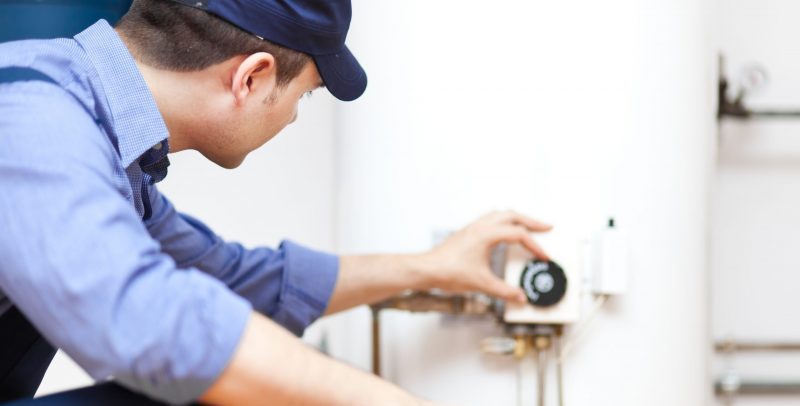
5 Reasons Why Your Water Heater is Scalding Hot
“Ouch, that’s hot!” Sounds familiar? If the water is scalding hot as it comes from your water heater, you’ve got three problems on your hands.
- Firstly, there’s the risk of serious burns from extremely hot water from taps and fixtures in your home. This is a major concern, especially if you have the young or the old using your water.
- Second, you have a malfunctioning water heater to worry about.
- And finally, you can expect a big energy bill just around the corner!
If the hot water from your water heater is too hot, it could be due to a faulty heater element or thermostat, mineral build-up, blocked pressure relief valve, or even the tempering valve.
How Hot Is Too Hot For A Hot Water Heater?
Most water heater thermostats are set somewhere between 60 and 70°C. But did you know that 70°C water will burn adult skin in just one second and a child’s skin in just half a second according to the Australian Building Codes Board?
Adults and children can enjoy 50°C water for 5 minutes before risking burns. At 45°C, that time goes up to 6 hours! If 60-70°C water is too hot and will cause burns, then why don’t we set the thermostat to 50°C?
When storing water for heating in the water tank of a gas or electric water heater, you run the risk of legionella bacteria growing inside. Setting the thermostat at 60-70°C means you minimise this risk.
That’s why, under Australian regulations, homes must have tempering valves installed for sanitary fixtures such as your shower and bathroom tap. These make sure that the water that comes out of these fixtures is at a safe temperature that won’t burn you.
At most, you’ll have 50°C hot water, which is safe for up to 5 minutes for both adults and young children. Mix in some cold water and you’re all good to have those long showers we all love.
1. Thermostat Is Either Set Too High Or Is Broken

Both electric and gas water heaters have a thermostat, or a temperature setting to heat the water to. If you have really hot water coming from your hot water system, you’re best to check this as your starting point.
The thermostat helps to regulate the temperature of hot water heaters. The temperature it senses controls whether or not the system’s heating elements are off or on.
Check your thermostat and see what temperature it is set to. If this is too high, this is what is causing your water heater to produce scalding hot water.
Alternatively, you might simply have a broken water heater thermostat. This could be an improperly calibrated thermostat, meaning the temperature it reads is consistently lower than what it actually is. Or perhaps a broken safety trigger is constantly heating your water.
Whatever the situation, replacing a thermostat is no DIY job – you will need to contact a professional plumber to make sure the job is done right.
2. Mineral Build-up
Our water contains a range of minerals that aren’t filtered out during the water treatment process. We consider water with an especially high concentration of these minerals as hard water.
An excessive build-up of minerals in your hot water heater could be a cause of a high water temperature. These minerals eventually settle at the bottom of your water heater and form a hard layer of sediment.
This layer will mean your system will require more energy for water heating. It can also cause overheating, and can heat your water to much higher temperatures than it is set to. On top of unexpectedly hot water, this will also decrease your water heater’s lifespan.
3. A Blockage In The Pressure Relief Valve

The pressure relief valve is a very important component of a hot water system. As the water heats up in the tank and generates steam, the pressure relief valve releases this steam to regulate the pressure within the tank.
With a blockage in the pressure relief valve, the pressure inside the tank will increase and effectively overheat the water. This sudden increase in temperature might explain why your hot water has become too hot. In the worst-case scenario, such a blockage could result in the explosion of your water heater.
Given the explosion risk, it becomes essential to contact a plumber immediately. If you suspect a blockage in your pressure relief valve, urgently seek an emergency plumber who can respond promptly.
4. Malfunctioning Heating Element
Electric water heaters contain one or two heating elements inside the tank to heat the water. If you suddenly have scalding hot water from taps in your home, this could be a sign that a heating element has stuck.
It is often the lower element that sticks first due to the sediment layer on the bottom. This means it is constantly heating, causing the water to overheat.
Just like the problems above, replacing a heating element could be disastrous for an amateur. Only a licensed, professional plumber should be working with systems that mix electrical heating elements and water.
5. Your Tempering Valve Is Either Faulty Or Missing
Your hot water system’s tempering valve limits your water’s maximum temperature to 50°C for sanitary fixtures. If this valve is faulty, your water could be coming out much hotter than this maximum, risking serious scald burns.
If you have an older water heater, you might not even have a tempering valve to begin with! By law, new storage water heater installations require tempering valves.
While regulations vary slightly between states, a general rule of thumb is that if you’re installing a new water heater, even if it’s like-for-like, you need a tempering valve.
Get Out Of Hot Water With Metropolitan
No matter what reason your water heater is scalding hot, Metropolitan can help with our 24/7 availability and service within an hour*. We have all your plumbing needs sorted with our experienced emergency plumbers.
Published: 2021-02-04

















